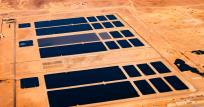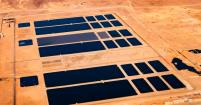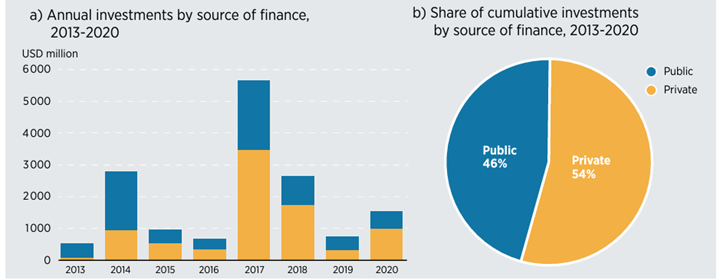

North Africa's Renewable Potential and Strategic Location Reinforce Its Role in Energy Transition
Newsletter
North Africa – Algeria, Egypt, Libya, Morocco, Tunisia, and Sudan – faces significant challenges due to climate change, which increasingly disrupts the region’s economies that rely on agriculture, fishery and tourism. Climate mitigation efforts, including renewable energy deployment is therefore crucial for the region’s climate resilience, while further developing their economies. Fortunately, the region is endowed with immense renewables potential, especially solar and wind power, making it a prime candidate for a renewables-based energy transition.
As the African continent's largest energy market, the region – apart from Sudan – is characterised by notable socio-economic development, industrialisation and access to modern energy. These characteristics, combined with its vast renewables potential, could enable North Africa to lead at the forefront of the global energy transition.
North Africa’s business case for renewables is strong; costs of solar and wind technologies have come down significantly. As a result, North Africa leads the African continent in new utility-scale wind and solar deployment, and is home to almost half of Africa’s total installed wind power generation capacity, as well as a fifth of its grid-based solar power generation capacity.

North Africa is also well-positioned to be a major producer and exporter of green hydrogen. With high renewables potential that can be tapped at low costs, and geographical proximity to Europe where demand for renewables-based or green hydrogen is rising, many North African countries have entered into agreements with other countries and private companies to explore pilot projects for green hydrogen production and exportation.
Investments in the region need to increase, however. Apart from 2017 when investments peaked at USD 5.7 billion, investments have remained below the USD 3 billion mark, falling to USD 2.4 billion in 2021. Investments also need to be more equitably distributed. So far, most of the investments are concentrated in Morocco and Egypt.

Contrary to the global trend in the period of 2013-2020 which shows private sector financing as the primary source of funding for renewables development, North Africa sees public finance play a far more important role. Multilateral development banks, development finance institutions, export credit agencies, guarantee funds and private reinsurance have provided direct funding, risk mitigation support and technical assistance, to help build a regular pipeline of future renewable energy projects in the region.
And renewables investment yields substantial job creation benefits, surpassing fossil fuels by two to five times per dollar invested. With its sizable and educated workforce, North Africa has an opportunity to benefit from the job creation potential, driven by appropriate labour market and education policies including technical and vocational training programmes. While competitive auctions are becoming the primary instrument to drive investments in renewables, in the future, add-on policies such as net metering and feed-in-tariffs could further drive investments, leading the region closer to its socio-economic goals, including the Agenda 2030.
Learn more about the recommended policies for North Africa in this report: https://www.irena.org/Publications/2023/Dec/North-Africa-policies-and-finance-for-renewable-energy




